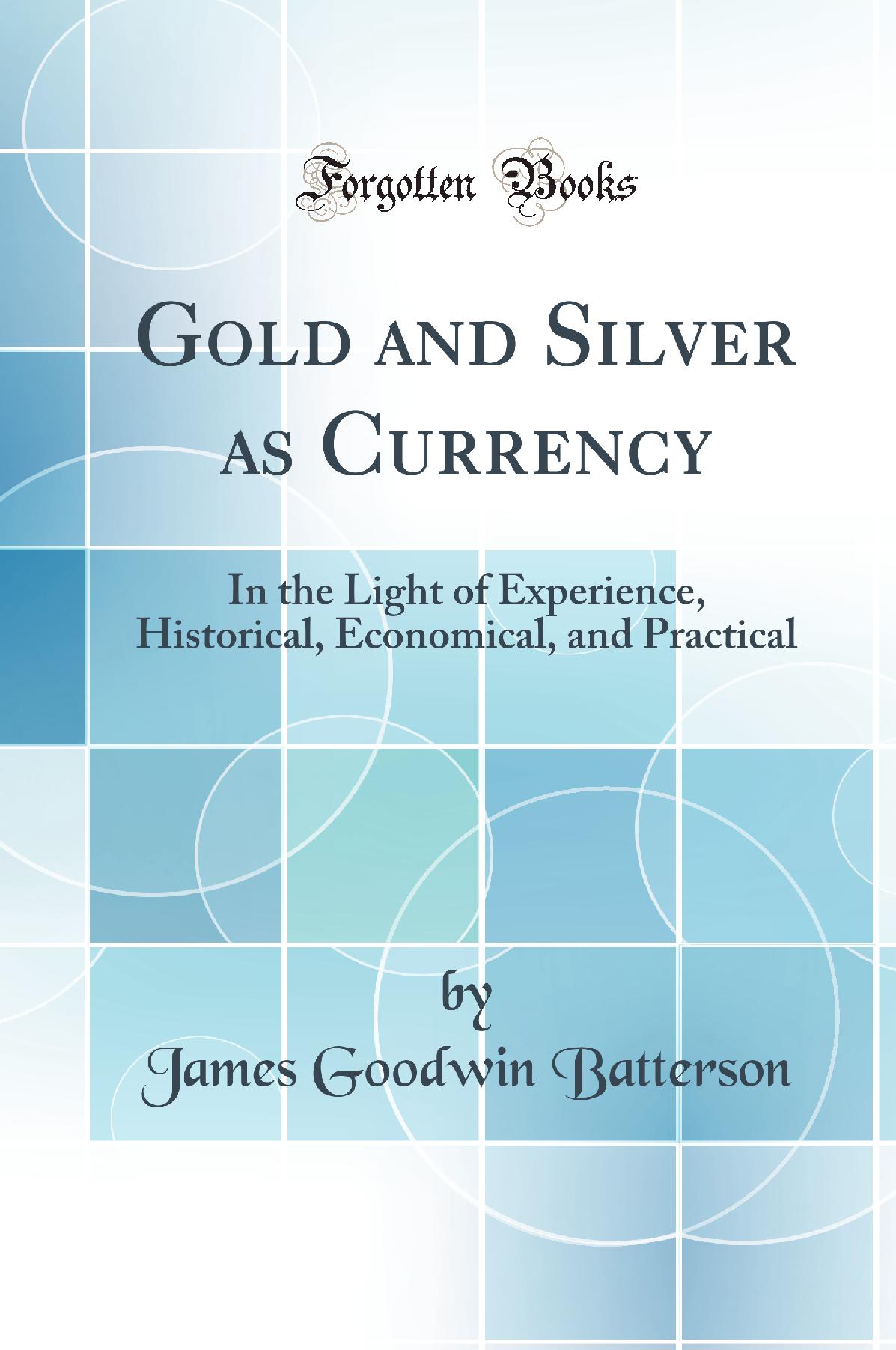Description
Excerpt from Gold and Silver as Currency: In the Light of Experience, Historical, Economical, and Practical
The division of labor, also, not only between the states and the peoples of a single country, but between the nations of the earth, is the highest type of universal civilization. The exchange of products, skilled labor, and inventions being the substance of commerce, is the bond of social inter course both at home and abroad. Every impediment in the way of building up our own commerce and extending our trade with other nations is a hindrance to the progress of civilization and a hindrance to the payment of our just debts, which can only be paid with our own products and the thrift of our own people. England, France, Germany, and Holland have purchased our securities with gold we cannot legislate their payment in silver. By the full amount of our foreign indebtedness, we are now under bonds to preserve a gold basis with those countries, and we cannot change it until we pay our debts, and then we will not want to. De stroying our credit is a very poor way to pay debts.
Before the Civil War cotton was king, and supplied a larger volume of exchange on London than any other pro duct ih this Country. When the writer was in Egypt in 1859 cotton was a very scarce commodity in the port of Alexan dria; now every mill in New England and old England buys Egyptian cotton, and cheap labor in the valley of the Nile and in India affects the great staple of our Southern States unfavorably. We cannot prohibit its importation without promoting increased cultivation in Egypt and India. The Soudan is the natural cotton country of the world, and it is larger than the United States. England has long been reaching out for that prize and will get it soon.
About the Publisher
Forgotten Books publishes hundreds of thousands of rare and classic books. Find more at www.forgottenbooks.com
This book is a reproduction of an important historical work. Forgotten Books uses state-of-the-art technology to digitally reconstruct the work, preserving the original format whilst repairing imperfections present in the aged copy. In rare cases, an imperfection in the original, such as a blemish or missing page, may be replicated in our edition. We do, however, repair the vast majority of imperfections successfully; any imperfections that remain are intentionally left to preserve the state of such historical works.
The division of labor, also, not only between the states and the peoples of a single country, but between the nations of the earth, is the highest type of universal civilization. The exchange of products, skilled labor, and inventions being the substance of commerce, is the bond of social inter course both at home and abroad. Every impediment in the way of building up our own commerce and extending our trade with other nations is a hindrance to the progress of civilization and a hindrance to the payment of our just debts, which can only be paid with our own products and the thrift of our own people. England, France, Germany, and Holland have purchased our securities with gold we cannot legislate their payment in silver. By the full amount of our foreign indebtedness, we are now under bonds to preserve a gold basis with those countries, and we cannot change it until we pay our debts, and then we will not want to. De stroying our credit is a very poor way to pay debts.
Before the Civil War cotton was king, and supplied a larger volume of exchange on London than any other pro duct ih this Country. When the writer was in Egypt in 1859 cotton was a very scarce commodity in the port of Alexan dria; now every mill in New England and old England buys Egyptian cotton, and cheap labor in the valley of the Nile and in India affects the great staple of our Southern States unfavorably. We cannot prohibit its importation without promoting increased cultivation in Egypt and India. The Soudan is the natural cotton country of the world, and it is larger than the United States. England has long been reaching out for that prize and will get it soon.
About the Publisher
Forgotten Books publishes hundreds of thousands of rare and classic books. Find more at www.forgottenbooks.com
This book is a reproduction of an important historical work. Forgotten Books uses state-of-the-art technology to digitally reconstruct the work, preserving the original format whilst repairing imperfections present in the aged copy. In rare cases, an imperfection in the original, such as a blemish or missing page, may be replicated in our edition. We do, however, repair the vast majority of imperfections successfully; any imperfections that remain are intentionally left to preserve the state of such historical works.
Details
Publisher - Forgotten Books
Language - English
Hardback
Contributors
Author
James Goodwin Batterson
Published Date -
ISBN - 9780666380845
Dimensions - 22.9 x 15.2 x 0.4 cm
Page Count - 72
Paperback
Contributors
Author
James Goodwin Batterson
Published Date -
ISBN - 9781330569573
Dimensions - 22.9 x 15.2 x 0.4 cm
Page Count - 74
Payment & Security
Your payment information is processed securely. We do not store credit card details nor have access to your credit card information.

